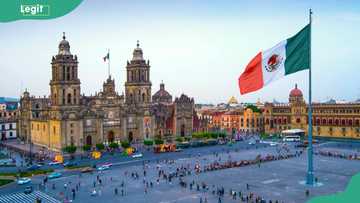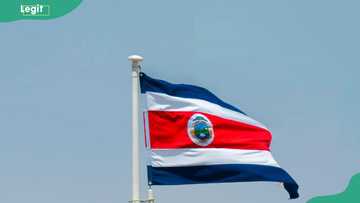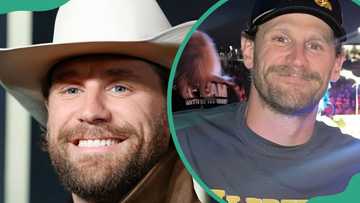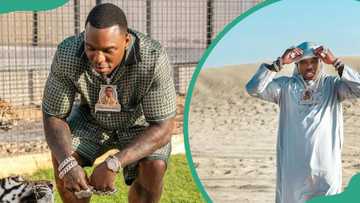100+ Native American last names and their meanings
Native Americans were the inhabitants of much of North America long before the arrival of European settlers in the 15th century. Like numerous other cultures, these people had traditions that governed their practices, names, beliefs, and associations. Most Native American last names were derived from a person's time of birth, occupation, temperament, clan, and habitation. Professor Joseph Gone, a professor of anthropology, global health, and social medicine at Harvard University, shares insights that explore the evolution of Native American naming practices, the impact of assimilation policies, and the enduring legacy of traditional names in modern American life.
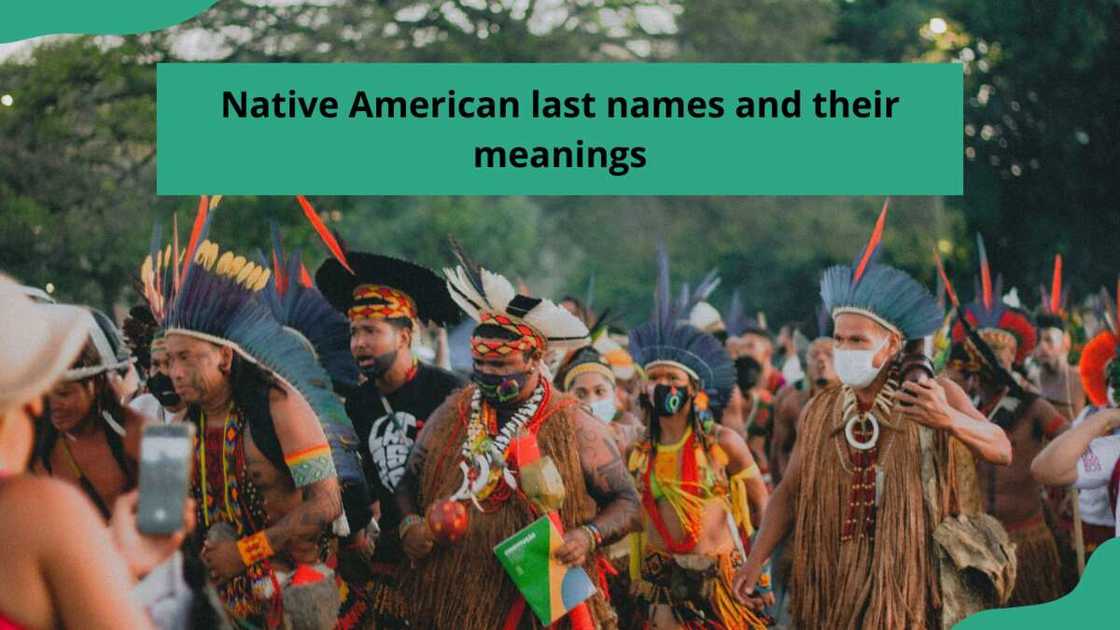
Source: UGC
TABLE OF CONTENTS
- What common themes or cultural elements are reflected in Native American last names?
- How do Native American last names differ among various tribes and regions?
- Can you provide examples of Native American last names and their commonly misunderstood or misrepresented meanings?
- Native American last names and meanings
- What are Blackfoot's last names?
- What is the most common Native American last name?
- Do Native Americans pick their own name?
Native Americans are comprised of numerous sub-groups or tribes. The best-known ones are the Navajo, Cherokee, Apache, and Sioux. Over time, the Native Americans' names got passed down the generations. Today, there are a lot of picks that have a rich history and a deep meaning.
What common themes or cultural elements are reflected in Native American last names?
Professor Joseph Gone, a professor of anthropology, global health, and social medicine at Harvard University, explained in an interview that while many Native Americans today have surnames indistinguishable from those of other Americans due to centuries of intermarriage and cultural assimilation, a subset of individuals still carry names with traditional roots. He said:
There is a subset of native people whose surnames or last names have a traditional name as part of it. And, so in those parts of the country, especially where European settlement came much later, where native people were living their Aboriginal way of life much longer, where intermarriage occurred less frequently or pervasively up until the late 1800s, you have some last names that preserve some of the traditional Indian names from before the reservation era.
Most Native Americans have nondescript American last names that you would not recognize as Native American.
How do Native American last names differ among various tribes and regions?
Professor Gone said the differences in last names often stem from how long a tribe maintained traditional lifestyles before the reservation era began. He explained:
Europeans arrived on the East Coast of Native North America 400 years ago. Still, the reservation era is only 150 years ago for some tribes, like in my home state of Montana in the United States. That’s the main regional difference: how late people lived that traditional way of life.
To further elaborate on the difference, Professor Gone shared a personal example of his family’s history and the assimilation of Native Americans:
- His family name, “Gone,” comes from the English word “gone,” derived from his great grandfather's assimilation to a federal government boarding school in 1891. Such schools intended to assimilate Native Americans into modern society. According to Professor Gone, those boarding schools’ explicit slogan was to “kill the Indian and save the man.” He explained:
The idea was that Indian people were savage and barbaric and not fit for modern life. Rather than letting them die out on a reservation, they would try to take us to school, teach us English language and math and reading/literacy, and make us suited for modern life by making us farmers and sewists - to provide us with vocational education and training in a skill or a trade and help us to melt into the broader American society.
- One of the things practiced in such government boarding schools was to translate names into English and give them a Christian first name to assimilate individuals into modern American life. Professor Gone said:
My great-grandfather’s Indian name when he was born was 'Many Coups or Many Plumes' (the English translation of the language we would have used traditionally), and it refers to the fact of war honors. A coup or 'counting coup' commemorates a very brave deed in warfare. My people were at war for 150 years before the reservation era because the European trade in beaver pelts and buffalo hides in that part of our country was destabilized.
And because we were at war competing with other Native American rivals for control of that fur trade, there was much violence. Martial and warlike values became very important, and many of my ancestors were named after war deeds, war exploits, or accomplishments during war.
I have relatives and ancestors who were called 'Kills at Night,' 'Killed in the Brush,' '2 Strikes' (which means to hit an enemy twice), and of course, 'Gone to War,' which means you are not home but away protecting and defending your territory and your people.
They took my father's Indian name and translated it into English, which in this case was 'Gone to War.' They cut it down to 'Gone' and gave him a Christian first name, Freddie. He started at age 5 when he entered the US government boarding school at Fort Belknap Agency in Montana.
Indian people didn't have last names. When you ask how we understand and make sense of Indian last names, we must appreciate that it's a modern American practice to have a first name, a surname, or a Christian name and a surname. Indian people didn't have that.
Professor Gone also mentioned that traditional names could change from birth to adulthood. He said:
Sometimes, young babies are called boy or girl until the family decides on a name for them. And then, at age 2 or 3, they may have a name ascribed to them. That would be their name, but that name could change. It could change when they're teenagers or adults in response to an event or experience, and they might take a new name.
Can you provide examples of Native American last names and their commonly misunderstood or misrepresented meanings?
Traditional names often describe notable traits or events but are sometimes misunderstood or mocked in modern contexts. Professor Gone offers examples from his lineage:
- Old Man Crazy and Gone – This comes from his mother’s side.
- Lame Bull – A family name that originated from his great-great-great-grandfather.
- Azure and Brisbo – Professor Gone said this is one of his lineages to his father. He illustrated:
On my dad's side, our names are French because Frenchmen intermarried with native women generations ago, 100 or 200 years ago. The'Azure' line, which you can trace back to Azures in France if you go back enough generations. And then the 'Brisbo' line, even though we spell it the English way (which differs from the French way, Brisbeaux, which also comes from a French family name).
Native American last names and meanings
Here, you can check out some of the most interesting names, from the most common indigenous last names to the ones that are exclusive to every tribe.
Most common Native American last names
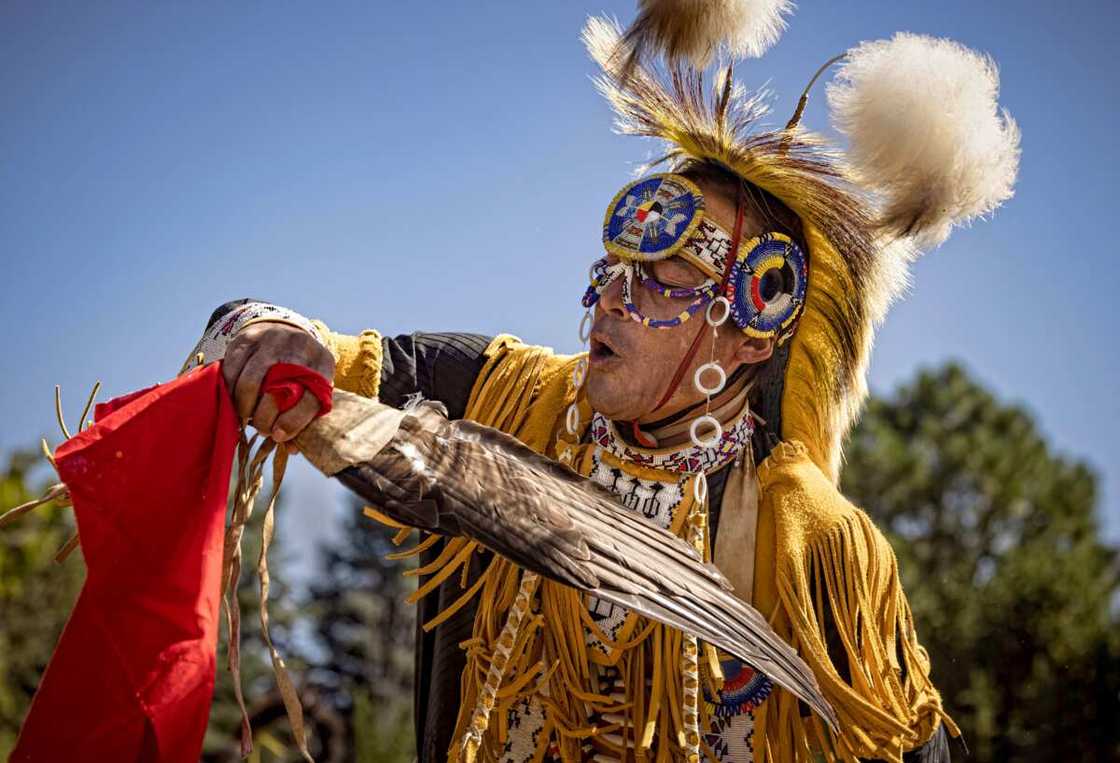
Source: UGC
These options are normally used by Native American people regardless of their tribe. They are quite common but no less interesting. Some of them have originated from other nations and cultures that settled in America.
| Name | Meaning |
| Williams | Resolute protector |
| Smith | One who strikes metals |
| Sandoval | Groove of wood |
| Paddock | Small enclosure |
| Maizen | Occupational, meaning 'the one that picks maize' |
| Locklear | A person who was a locksmith |
| Lewis | Victorious |
| Kipp | To swell; fat man |
| Jones | God has favoured |
| Johnson | Son of John |
| Irving | Water |
| Howell | The sun |
| Holt | A small grove of trees |
| Hensley | Stallion |
| Galord | High-spirited, cheerful |
| Eubank | One who lives near the ridge of a yew |
| Denton | From the town in the valley |
| Deere | Precious |
| Cornfield | Occupational, for those who worked in a cornfield. |
| Chavos | Child |
| Brown | One with brown hair, complexion, or clothing |
| Hilliard | One who lives on the hills |
| Branham | From the habitation of the Bramham tribe in West Yorkshire |
| Bluebird | Happiness |
| Bia | Blessed or white |
| Bernard | As strong as a bear |
| Bahe | The gray man |
| Alexander | Defender of the men |
| Alberty | Belonged to the Alberti family, who lived in the United States at the beginning of the 1920s. |
Traditional Native American last names
Some examples are rather old-timey, and today, it may not be easy to find a person who bears it. However, they have an exciting history. Here are some of the oldest Native American names and their respective meanings.
| Name | Meaning |
| Welch | Foreign |
| Warcloud | From the words war and cloud |
| Vance | From the marsh |
| Tsosie | Slim |
| Thunderhawk | Based on the power of thunder, combined with the word hawk |
| Swiftwater | A family that lives near swift water |
| Summerhill | A family that lives on a hill |
| Pompey | Five |
| Huaman | Hawk |
| Filemonsen | Son of Filemon |
| Countryman | A man who lived in the country |
| Chubbuck | This one is of German origin and means 'chubby one.' |
| Bravebird | Based on a bird's trait |
| Blackrock | A family from the black rock area |
| Arrow | Given to a hunter |
Unique Cherokee last names
The Cherokee are an indigenous group of the United States that live in the Southeastern Woodlands. When it came to Cherokee surnames, they used their imagination in the best way. Here is a nice Cherokee last names list to help you get an idea.
| Name | Meaning |
| Yansa | Buffalo |
| Wesa | Cat |
| Waya | Wolf |
| Wahkan | Sacred |
| Utsidihi | The mankiller |
| Tskilekwa | Big wizard |
| Tsiyi | Canoe |
| Rayetayah | Hanging maw |
| Onacona | White owl |
| Moytoy | Rainmaker |
| Kanagagota | Standing turkey |
| Kana′tĭ | the lucky hunter |
| Gawonisgi | Speaker |
| Cheasequah | Red bird or cardinal |
| Chaske | First born son |
| Austenaco | Chief |
| Atsadi | Fish |
| Atohi | Woods |
| Ahyuini | Swimmer |
| Adahy | Close to the Cherokee word adahi’i which actually means poison |
What are some Navajo last names?
The Navajo are a Native American nation that resides in the Southwestern United States. It is the largest tribe in the United States, followed by the Cherokee Nation. Here are some indigenous surnames from the Navajo people.
| Name | Meaning |
| Yazzie | Little |
| Tsosie | Slender or slim |
| Tsinajinnie | Black streak clan |
| Tsinaji | Black |
| Todicheene | Bitter water people |
| Toadlena | Water that flows up and out |
| Tlizilani | Goat |
| Tabaaha | Shore, beach |
| Peshlakai | Silver |
| Nez | Tall |
| Lapahie | Gray |
| Hatahle | Medicine man |
| Etsitty | Smithy, pounder; to pound |
| Descheene | Clan designation, red-streak people |
| Daisy | Younger one |
| Claw | Left-handed |
| Bylilly | For him; magic power |
| Bitsillie | Younger brother |
| Benally | His grandchild |
| Begay | His son |
| Adakai | Gambler, card player |
| Acothley | Cowboy |
What are some Apache last names?
The Apache originally resided in what is now the Southwestern United States. The Apache people are subdivided into various subtribes. These include the Jicarilla, Chiricahua, Salinero, Lipan, Mimbreño, Mescalero, and the Ndendahe people. Here are some Apache names and their meanings.
| Name | Meaning |
| Altaha | High or elevated |
| Cosay | Person who lived on the White Mountain |
| Dosela | The commoner |
| Mescal | One from the Mescalero clan |
| Tessay | One who lives in the reserve |
What are some Sioux last names?
The Sioux tribe is made up of three subtribes, namely the Dakota, Lakota, and Nakota. The Sioux people were known for being skilled warriors. Here are some names from the Sioux tribe.
| Name | Meaning |
| Maka | A Lakota surname that means soil, ground, or earth |
| Howahkan | A strong voice or sacred voice |
| Galihai | A Lakota last name that means gentle or delicate |
| Chaska | This Dakota last name means son |
| Angpetu | It means radiant or daytime |
Unique Native American names
While most Native Americans are not exactly what one would consider commonplace, some are rarer than others. If you are looking for cute surname that completely stands out, here are some excellent unique options.
| Name | Meaning |
| Fineday | Derived from a good day |
| Decorah | Serpent |
| Declay | The charming one |
| Coriz | Cheerful and friendly |
| Claymore | Big or great sword |
What are Blackfoot's last names?
The Blackfoot people, or the Siksikaitsitapi, are Indigenous people primarily residing in North America. Examples of Blackfoot last names are:
- Siksski
- Sikonskiwa
- Sikimiotasi
- Sikaattsista
- Stamiksiipokai
What is the most common Native American last name?
Some of the most common Indian-American last names include Claymore, Brown, Alberty, Arrow, Lewis and Johnson.
Do Native Americans pick their own name?
Selecting a name among Native Americans varies depending on tribe and community. Individuals may have traditional names from elders or spiritual leaders within their tribe or group. These names are highly meaningful and frequently based on personal attributes, life events, or spiritual connections.
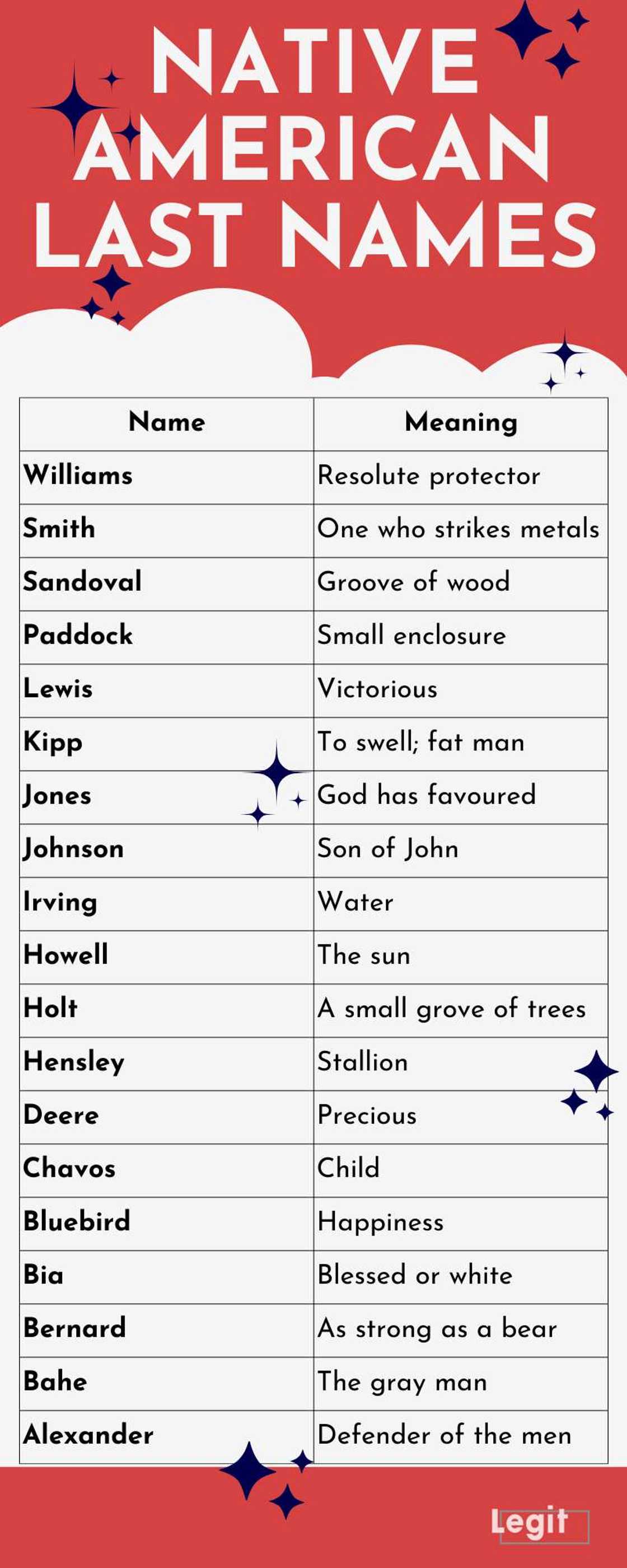
Source: Original
In today's world, Native American last names are among the unique names one can give their child. This is because most of the Native American tribes have since adopted the influences of other cultures, an attribute most reflected in their modern-day naming traditions.
Legit.ng recently published an article about the best nicknames one can give a boyfriend. Sweet and unique nicknames are not for women alone. Men also love being called sweet names by their loved ones or partners because they are a way of showing affection.
Coming up with a unique nickname for your boyfriend is essential for a romantic relationship. Check out this list of unique nicknames for guys that you can choose from.
Source: Legit.ng

Regina Stets (Lifestyle writer) Regina has been working as a reporter since 2017. She has written numerous publications on various topics, including celebrities, lifestyle, news, and many more. In addition to writing, she is also an English teacher, translator and a volunteer. Her interests are art, psychology and travelling, and she believes in equal rights for everyone. reginastets@gmail.com

Jackline Wangare (Lifestyle writer) Jackline Simwa is a content writer at Legit.ng, where she has worked since mid-2021. She tackles diverse topics, including finance, entertainment, sports, and lifestyle. Previously, she worked at The Campanile by Kenyatta University. She has more than five years in writing. Jackline graduated with a Bachelor’s degree in Economics (2019) and a Diploma in Marketing (2015) from Kenyatta University. In 2023, Jackline finished the AFP course on Digital Investigation Techniques and Google News Initiative course in 2024. Email: simwajackie2022@gmail.com.



